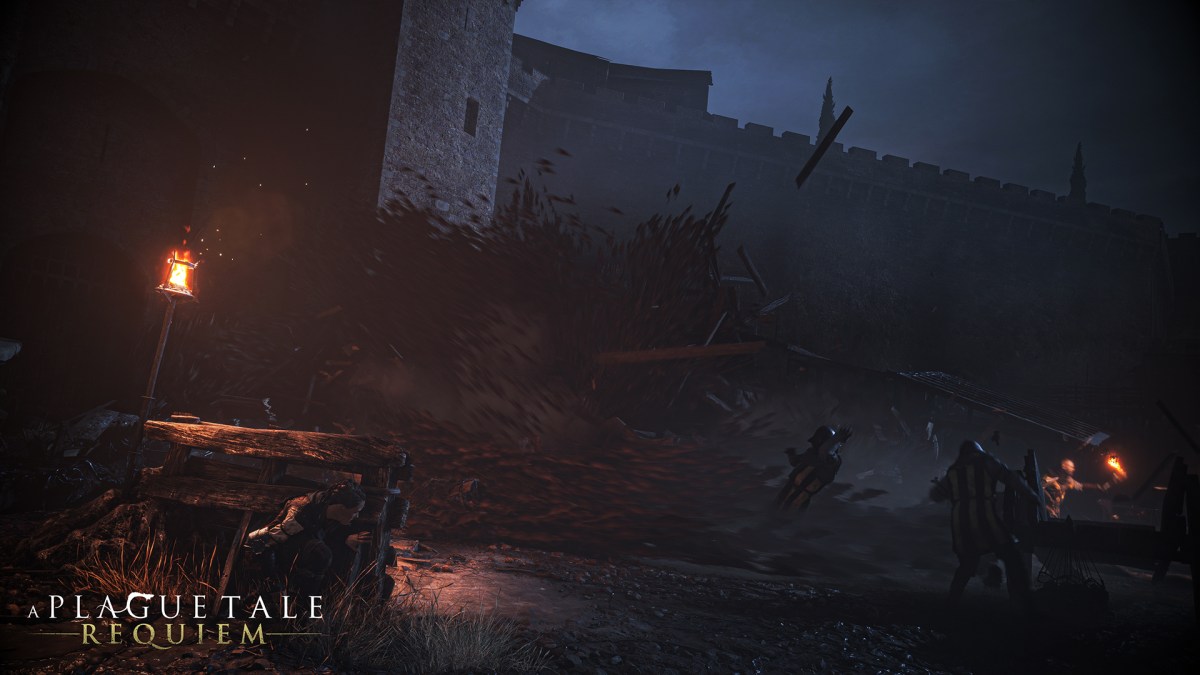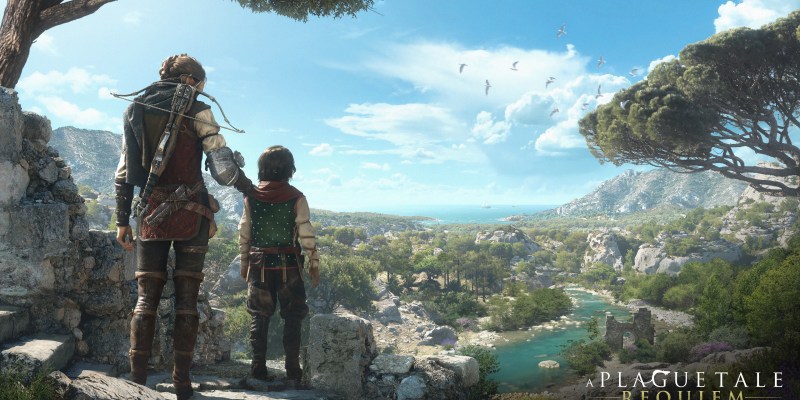This article contains some spoilers for A Plague Tale: Requiem.
A Plague Tale: Requiem gets a lot of things right. It’s a visually impressive, emotionally resonant, and mechanically rich adventure that quickly became one of my favorite AAA games of 2022. Developer Asobo Studio and publisher Focus Entertainment created the kind of sequel that feels bigger and better than the original in nearly every aspect — think the leap in quality between the first two Uncharted or Assassin’s Creed games, and you’d be in the right ballpark.
But what impressed me most about my time with Requiem is how well it creates a false sense of security, before pulling the rug out from under us. The game has mastered the art of inviting us into beautiful moments of calming serenity, before sending us careening full-force into a violent and terrifying storm, making both ends of the emotional spectrum all the more powerful.
After barely escaping death in the game’s opening, our sibling heroes Hugo and Amicia, alongside their mother Beatrice and traveling companion Lucas, find themselves in a pristine seaside village, where they plan to meet up with an alchemist who might be able to cure Hugo’s terminal illness. But before this meeting, you’re free to wander about the bustling market at the center of town, which turned out to be the start of one of my favorite moments of the game.

Merchants show off their wares, from colorful garments to local wines. Smoked meats and fresh fruit adorn the stalls, and you can practically taste them. Entertainers breathe fire, play musical instruments, and entice you to step right up and play their carnival games.
After all they’d been through in the first game, I wanted Hugo and Amicia to be able to stay here in this wonderful and peaceful moment, frozen in time from the horrifying truths of the outside world. Sadly, I knew that all good things must come to an end, and that ending would come with thunderous force.
Sure enough, the daylight dims, and clouds start to move in. You find yourself retracing your steps from earlier, but the crowds have dispersed. The streets and stalls that were once brimming with life now emanate an eerie silence. A few turns down new streets take you to a part of the city that you didn’t notice before — a much poorer section of town that’s heavily policed by guards. You hear whispers of people that have gone missing and a disease that’s sweeping through the neighborhood.
As you make your way deeper into the city’s underbelly, you see that things are much worse than you could’ve imagined — mass graves, rivers of blood, and the inevitable flood of rats submerge you in a genuine nightmare that seems like a lifetime away from the peaceful fair you meandered through just an hour before. Experiencing the two sides of the city back to back makes them act in a symbiotic relationship — the peace strengthens the terror and vice versa.
This sleight-of-hand trick of giving you a moment of peace and tranquility before diving right back into the hellish truths of the world is one that Asobo revisits a few times throughout A Plague Tale: Requiem. Midway through the game, a gorgeous midsummer festival filled with parades and farm animals and happy families turns on a dime after an assassination attempt.
Later on during a bright and sunny day, you’ll find yourself surrounded by picturesque fields of wildflowers as far as the eye can see, so dense that you can almost smell them as you move freely about. But when you revisit that same location later at night, the ground is swarming with a biblical plague of rats, and your only safety becomes the small, flickering pockets of warmth beneath scattered torchlights. A place can be heaven during the day and hell at night.

The ability of A Plague Tale: Requiem to play with our emotions like this reminded me a lot of what Naughty Dog accomplished with The Last of Us games, which did an excellent job of delivering these quiet respites that juxtaposed with the bloody horrors of Joel and Ellie’s adventure. The giraffes in the original, the arcade in Left Behind, and the wonderful museum flashback in Part II all used moments of calm to deliver standout moments in their respective games.
It’s easy to play through A Plague Tale: Requiem and focus on the expansive adventure, deep combat scenarios, and bombastic set pieces. But after I’d rolled credits and experienced the end of Hugo and Amicia’s journey, the moments that stuck with me were the quiet beats of everyday peace that were heart-wrenchingly brief — and never to be taken for granted.
